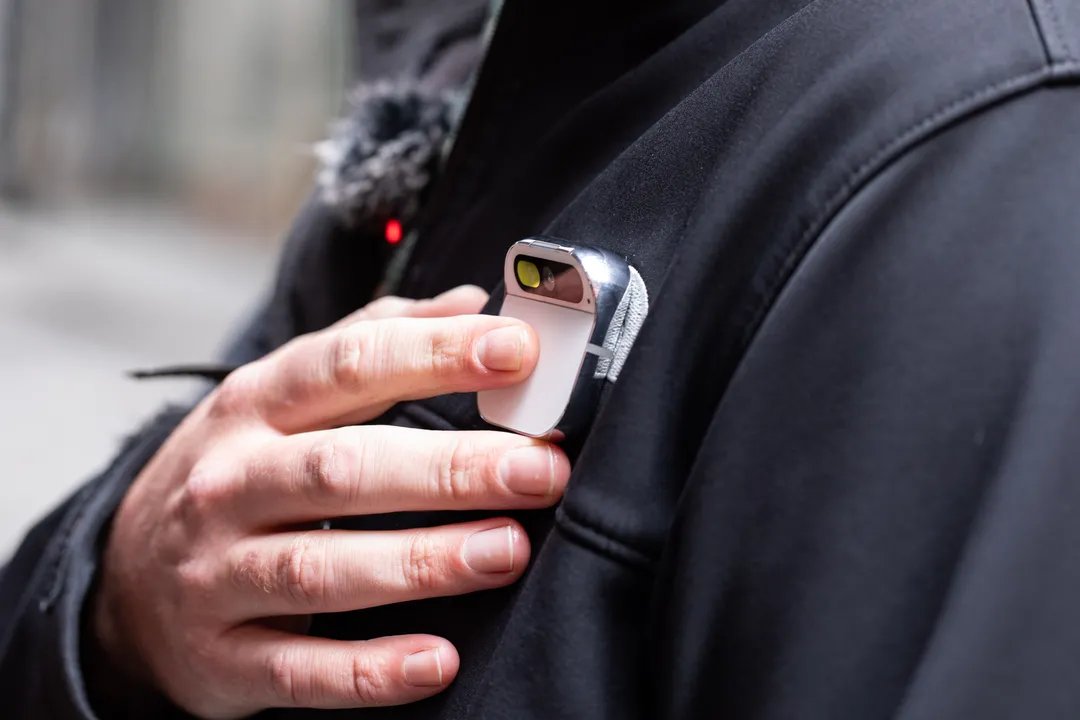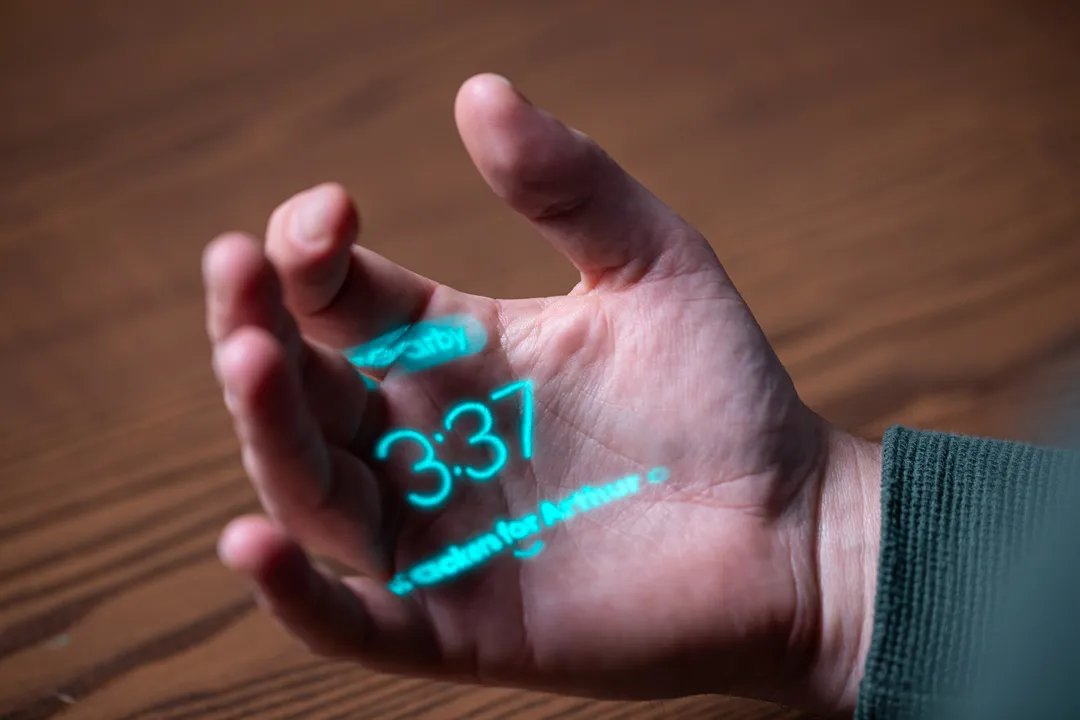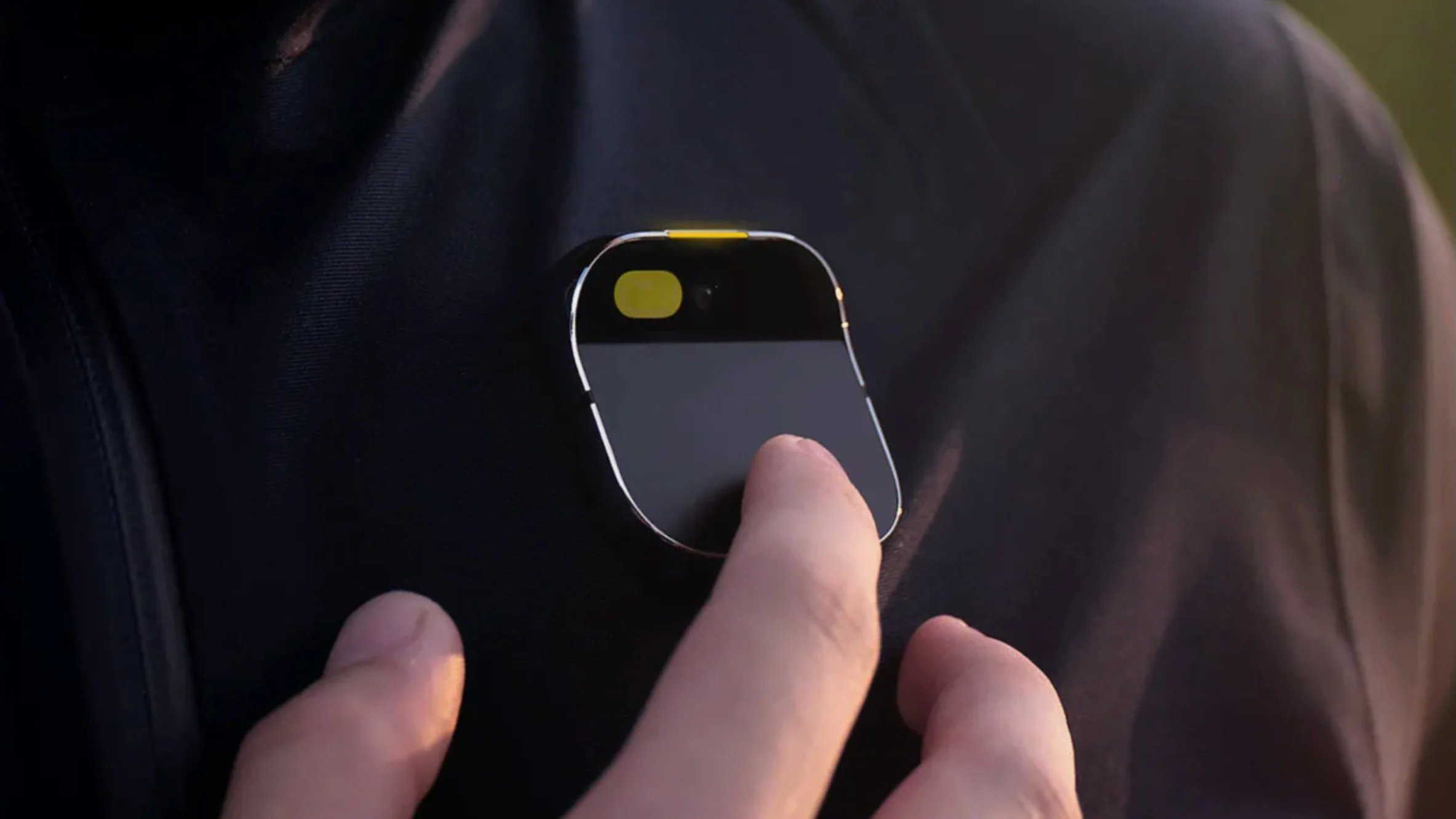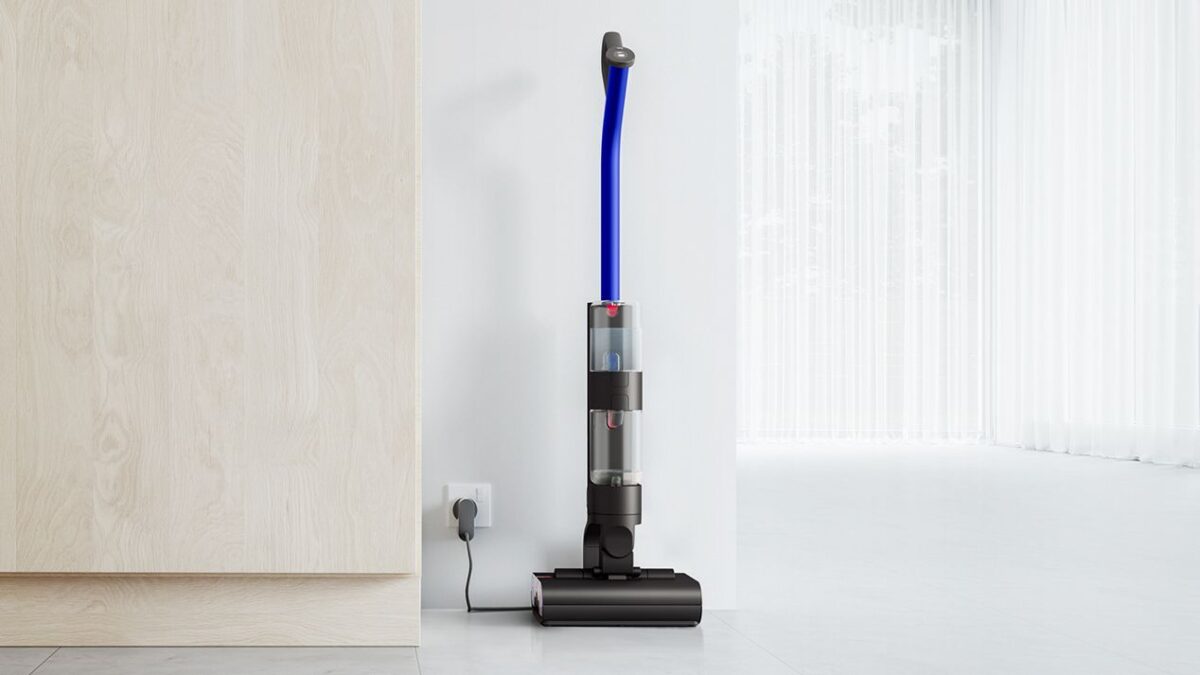Table of Contents
The Humane AI Pin device has been generating a lot of expectation as a possible replacement for smartphones, but does it keep what it promised? With a price of $699 and a monthly subscription fee of $24, this portable device promises to offer a screen-free experience, using an AI assistant and its CosmOS operating system to perform various tasks. However, after a detailed review, it seems that AI Pin still needs a lot of work to meet its ambitious goals.

Human AI Functions and design
The Human AI Pin has a compact design and is made of aluminum. It comes in two colors: white and black. The device is designed to be used on the right or left side of the chest, just below the clavula, and is attached by a magnet that also acts as a battery booster. The package includes two additional batteries, a charging tray, and a desktop charger.
The Human AI Pin is always connected and uses a variety of LLM models to answer questions and execute commands. You can perform tasks such as phone calls, text messages, calculations, taking notes, and providing information about nearby places. It also has a camera and a laser ink projector that displays information on the user’s hand.
User Experience
The user experience with the AI Pin is mixed. On the one hand, the device offers easier and faster access to certain functions compared to a smartphone. However, the revisor at The Verge found numerous problems, including an incredibly slow execution and an inability to perform basic tasks. The device could not configure alarms, add events to the calendar, or manage lists reliably. Translation functionality, one of its promoted features, was also poor.
The user interface of the projector, used to unlock the device and access some settings, was considered cumbersome and unnecessarily complicated. The device also overheated frequently and had an extremely short battery life, which required the constant use of additional batteries and the charging tray.
Reliability and performance
The reliability and performance of the AI Pin were disappointing. The device often failed to perform simple tasks, such as telephone calls or text messages, and experienced numerous errors. Music functionality, limited to Tidal, was also poor, with constant connectivity and playback problems. The review highlighted that, for each successful interaction, there were three or four failures, making the device frustrating to use.

Conclusion
The Humane AI Pin is an innovative device that tries to free users from their smartphones. However, in its current state, it is far from a viable product. While the idea behind the device is promising, the AI Pin needs significant improvements in terms of reliability and functionality. The device requires improvements in local task processing, better battery management, and a more intuitive user interface.
The future of AI-enabled devices is promising, but the AI pin is not yet ready to replace the smartphone. It is possible that, with time and updates, the AI Pin can get closer to its vision, but for now, it is more of a prototype than a finished product.











